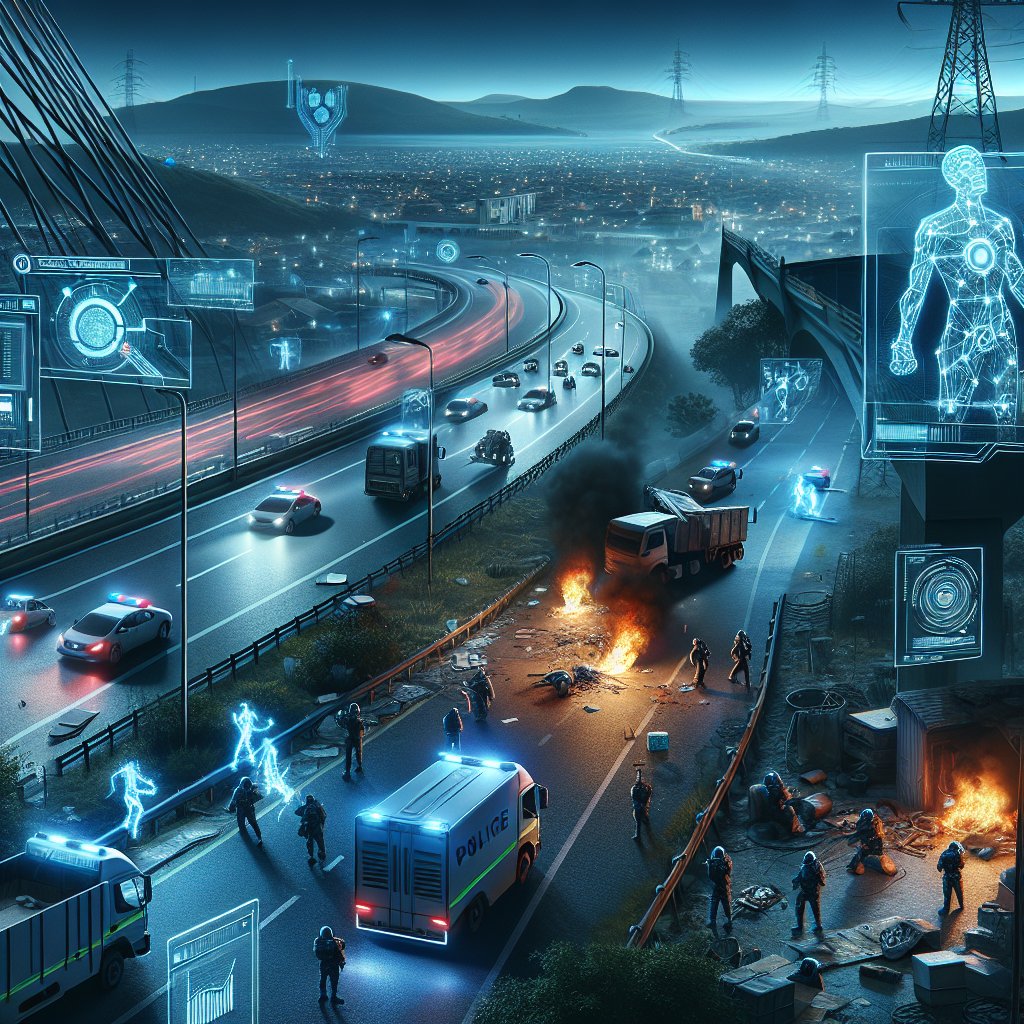Image created by AI
Trucks Torched Amidst Protests Over Power Outages in KZN
In a startling act of protest, five trucks were looted and set on fire on the N2 near Mfekayi in Mtubatuba, a town on the North Coast of KwaZulu-Natal (KZN). As per police reports, the blockade and subsequent torching of vehicles took place last night, sparking intense police action to quell the unrest. Witnesses are only beginning to unravel the full scope of the havoc caused.
KwaZulu-Natal Police Spokesperson, Robert Netshiunda, provided a detailed account of the events that transpired. Protesters, driven by frustration over persistent electricity outages in the area, initiated the blockade, targeting trucks in a show of dissent. The Public Order Policing unit was summoned to the scene and succeeded in re-establishing control amidst the chaos.
The police's immediate response involved tackling the fiery blockade and ensuring the safety of other motorists and community members. Following their intervention, a more in-depth investigation was launched. "The protestors were reportedly complaining about an electricity outage in the area. No arrests have been made so far, and police intelligence and other units are on the ground in the area with the aim of identifying those responsible for the crimes committed," stated Netshiunda.
While it's understood that the outage catalyzed the demonstrations, police are delving deeper to uncover the ringleaders and participants involved in this criminal activity. The lack of arrests thus far signals the complexities of policing protest actions, particularly when they ascend into lawlessness and violence.
The setting ablaze of the five trucks marks a significant uptick in protest activity in the region, where grievances over service delivery often drive residents to take extreme measures. The destruction of property not only underpins the severity of the unrest but also places immense pressure on the police and authorities to respond appropriately, balancing the right to protest with enforcing law and order.
As the KZN police work tirelessly to bring the culprits to justice, the incident is a stark reminder of the volatility of protests that can quickly escalate from peaceful demonstrations to full-blown riots. The repercussions extend beyond the immediate damage and loss of trucks; the impact on local businesses, road users, and community peace is substantial and long-lasting.
At present, questions linger regarding the efficiency of the municipality's response to the power outages and their ability to address the underlying issues fostering such extreme responses from affected residents. The situation is a microcosm of broader challenges faced by communities across South Africa when it comes to reliable service delivery.
The incident on the N2 is a developing story, and further details will surely emerge as police and investigators continue their diligent work. For now, the province, and particularly the town of Mtubatuba, remains on edge, with the potential for future protests and necessary interventions in the balance.










